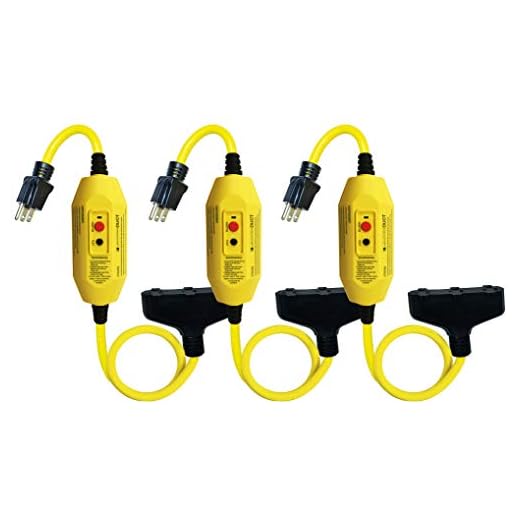



Begin the process by selecting a high-pressure unit, ideally with a minimum of 3000 PSI for stubborn stains. This power will effectively loosen dirt, oil, and grime embedded in the surface, ensuring a thorough refresh.
Assemble the required accessories, including a wide-angle nozzle for broader coverage and a surface cleaner attachment for uniform results. These tools enhance efficiency and eliminate the hassle of extensive scrubbing.
Prior to proceeding, clear the area of debris, furniture, and plants to prevent any damage. Applying a suitable detergent specifically designed for exterior hard surfaces will help in breaking down tough stains more quickly. Let this solution sit for a few minutes for optimal penetration.
Always maintain a safe distance from the cleaning surface to avoid damage. A recommended distance of around 30 cm will provide the balance needed between power and safety. Ensure a steady sweeping motion while working, overlapping each pass to achieve an even finish.
After rinsing, inspect for remaining spots. A second pass may be necessary in areas with significant buildup. Completing this task will extend the life of the surface, enhancing both appearance and functionality.
Maintenance Tips for Driveway Power Cleaning
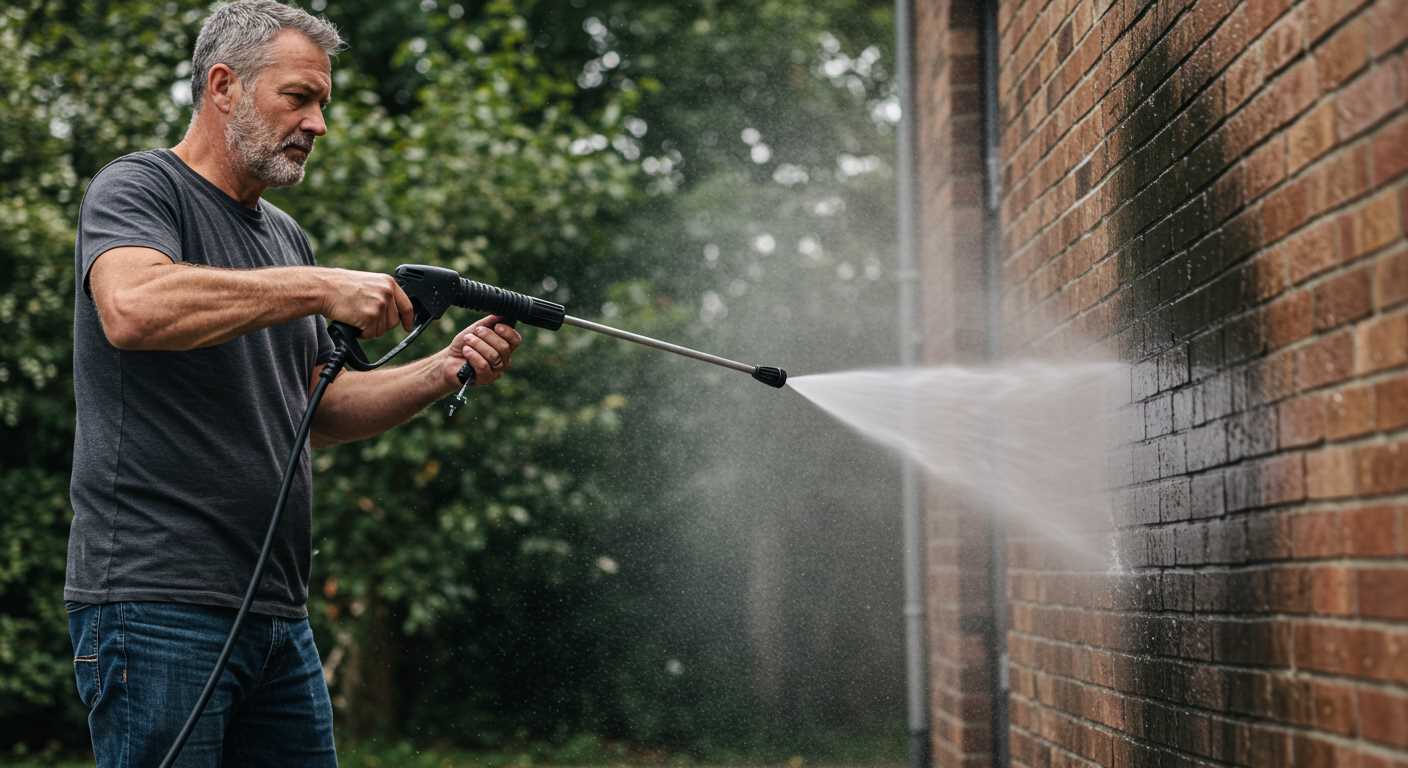
Before beginning, inspect for any cracks or structural issues that could worsen during the process. It’s important to ensure everything is in good shape. Next, clear away debris, including leaves and stones, for better water flow and results.
Choose a dedicated cleaning agent formulated for concrete. Dilute as per the manufacturer’s instructions and apply it liberally to the surface. Allow it to sit for the recommended duration to break down stubborn stains before rinsing.
Adjust the nozzle to a wide spray pattern initially to prevent damage. Stand at a consistent distance of 12 to 18 inches from the surface. This distance aids in efficiently removing dirt without causing chipping or etching.
Start washing from one end to the other in slow, sweeping motions. Overlap each pass slightly to avoid leaving streaks. Pay extra attention to areas with oil stains or tire marks; you may need to go over these spots more than once.
Once completed, rinse with clear water to wash away any soap or leftover debris. A final inspection will help identify any missed areas requiring a second pass.
Finally, ensure the surface is left to dry completely before parking vehicles. This promotes a cleaner finish and reduces the risk of slips or stains returning quickly.
Choosing the Right Pressure Washer for Driveway Cleaning
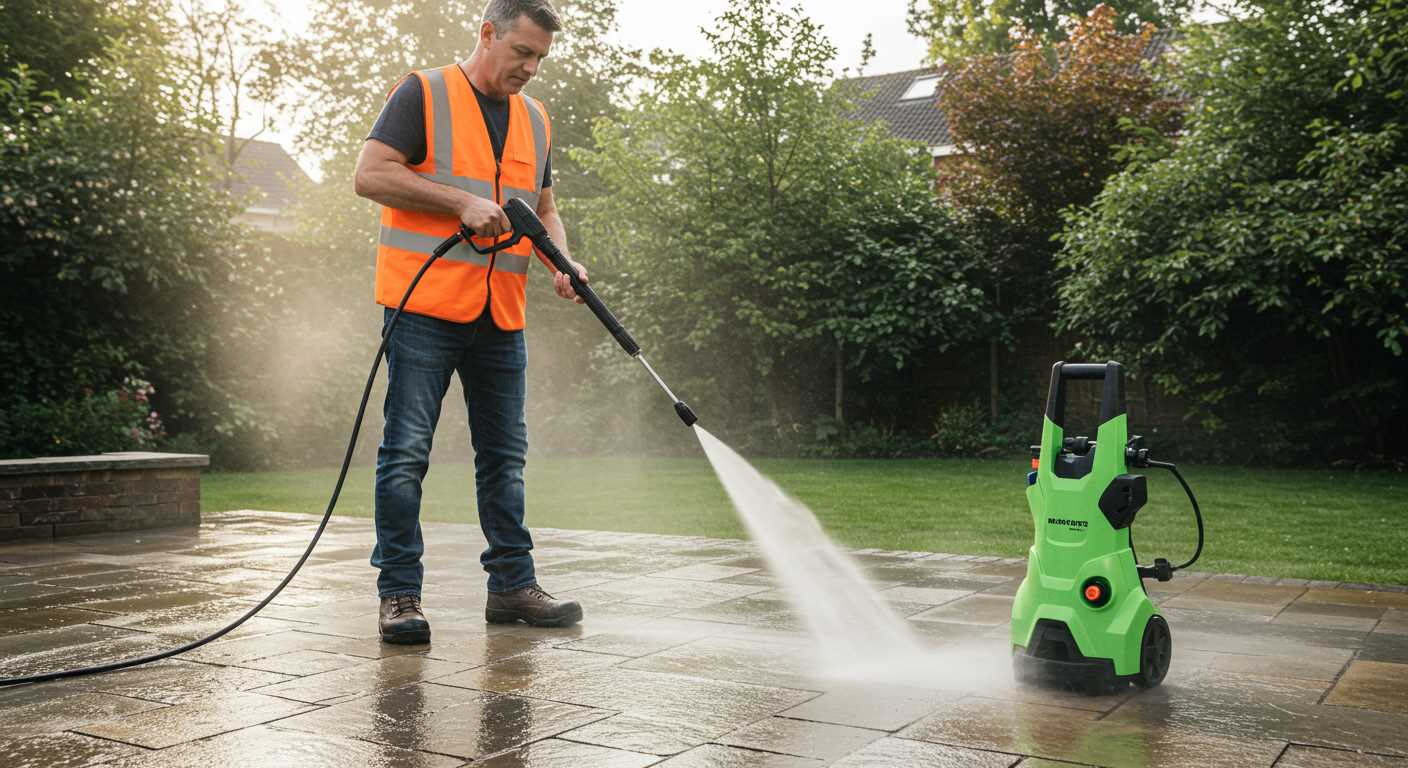
Select a unit with a minimum of 2500 PSI for most surfaces. This pressure ensures the removal of tough stains and grime.
Look for a detergent injection system; it aids in breaking down oils and dirt for better results.
Gas-powered models generally offer higher pressure and flow rates compared to electric ones, making them suitable for larger areas. However, if convenience and less maintenance are priorities, an electric machine might suffice.
Check for adjustable nozzles or quick-connect tips. This versatility allows tailoring the spray angle for various surfaces.
Consider the flow rate, measured in gallons per minute (GPM). A rate of at least 2.3 GPM will complement the pressure, enhancing overall performance.
Evaluate portability features. Wheels and weight distribution matter when manoeuvring around obstacles.
Lastly, ensure the warranty coverage is adequate. A longer warranty often indicates confidence in the product’s durability.
Preparing Your Driveway Before Pressure Washing
Clear the area thoroughly. Remove any obstacles such as vehicles, furniture, or planters. This prevents damage during the cleaning process and allows for unhindered access to all surfaces.
Inspect for loose debris. Sweep away leaves, dirt, and gravel that may hinder the effectiveness of the equipment. A clean surface ensures that the high-powered water jet can reach the underlying materials directly.
Check for cracks and damage. Identify areas needing repair prior to using any equipment. Filling cracks will prevent water ingress and further deterioration during the cleaning process.
Apply suitable chemicals in advance. Treat stubborn stains or mildew with appropriate cleaning agents designed for outdoor surfaces. Allow adequate time for these products to penetrate deep into the stains, enhancing their removal later.
Consider wetting the surface beforehand. This can help reduce the power needed and lessen the chance of debris becoming airborne. It’s particularly useful for lightly soiled areas, making the job more manageable.
Ensure proper drainage. Clear any nearby drains from debris to avoid water pooling. This promotes a smooth disposal of water and cleaning agents, preventing any unwanted backflow.
Prepare safety gear. Equip yourself with goggles, gloves, and non-slip footwear. Safety must be a priority, particularly when dealing with high-pressure jets and slippery surfaces.
Selecting the Best Cleaning Solutions for Driveways
I recommend opting for biodegradable detergents specifically designed for outdoor surfaces. These products often combine powerful cleaning agents with environmental safety. Look for those labelled safe for brick, concrete, and stone.
For oily or greasy patches, a degreaser is essential. Ensure it targets asphalt or concrete surfaces to prevent damage. Apply it directly onto the stains before pressure washing for optimal results.
Stubborn mould and mildew require a solution containing sodium hypochlorite or vinegar. These agents effectively eradicate organic growth. Be cautious and follow manufacturer instructions to avoid surface damage.
In cases of heavy-duty grime, consider a multi-surface cleaner. These formulations blend various cleaning agents to tackle diverse debris while being gentle on surfaces. Always test any solution on a small, inconspicuous area first.
For regular maintenance, a simple mixture of water and mild soap might suffice. This solution is gentle and safe for frequent use, keeping surfaces looking fresh without harsh chemicals.
Lastly, ensure you have protective gear, such as gloves and goggles, when handling cleaning agents. This precaution helps prevent skin irritation and protects eyes from splashes.
Techniques for Pressure Washing Different Types of Driveway Surfaces
For asphalt surfaces, utilise a fan spray nozzle at a 25-degree angle. Maintain a distance of approximately 12 inches from the surface to avoid damaging the material. Begin from the top and work downwards, ensuring even coverage to prevent streaking.
Concrete pathways require a more aggressive approach. Use a surface cleaner attachment for expansive areas to avoid overlapping marks. For grime and grease, incorporate a degreaser into the solution and allow it to dwell for about 5-10 minutes before rinsing. Always opt for a 15-degree nozzle for stubborn stains.
For pavers, exercise caution; utilise a low-pressure setting, around 800-1,200 PSI, while maintaining a distance of 12-18 inches. This prevents loosening the sand between stones. After washing, reset the joint sand to maintain structural integrity.
Brick surfaces demand a gentle touch. Use a fan nozzle and avoid high pressure that can erode the mortar. Work from the top down, similar to asphalt, and follow with a rinsing phase to ensure no residual soap remains.
Finally, if dealing with stamped concrete, a moderate setting will provide optimal results. Start from the highest point and work downwards, ensuring to rinse immediately to prevent stains from setting in. Always blow dry any pooling water quickly to maintain the surface’s aesthetics.
Safety Measures to Take When Using a Pressure Washer
Always wear protective eyewear, gloves, and sturdy footwear. This attire shields against debris and high-pressure water jets that can cause injury.
Ensure that the work area is clear of children, pets, and any obstacles. Create a safe zone to prevent accidents during operation.
Inspect the equipment before use. Check for loose hoses, leaks, and secure connections. Address any issues before starting the machine.
Electrical and Fuel Safety
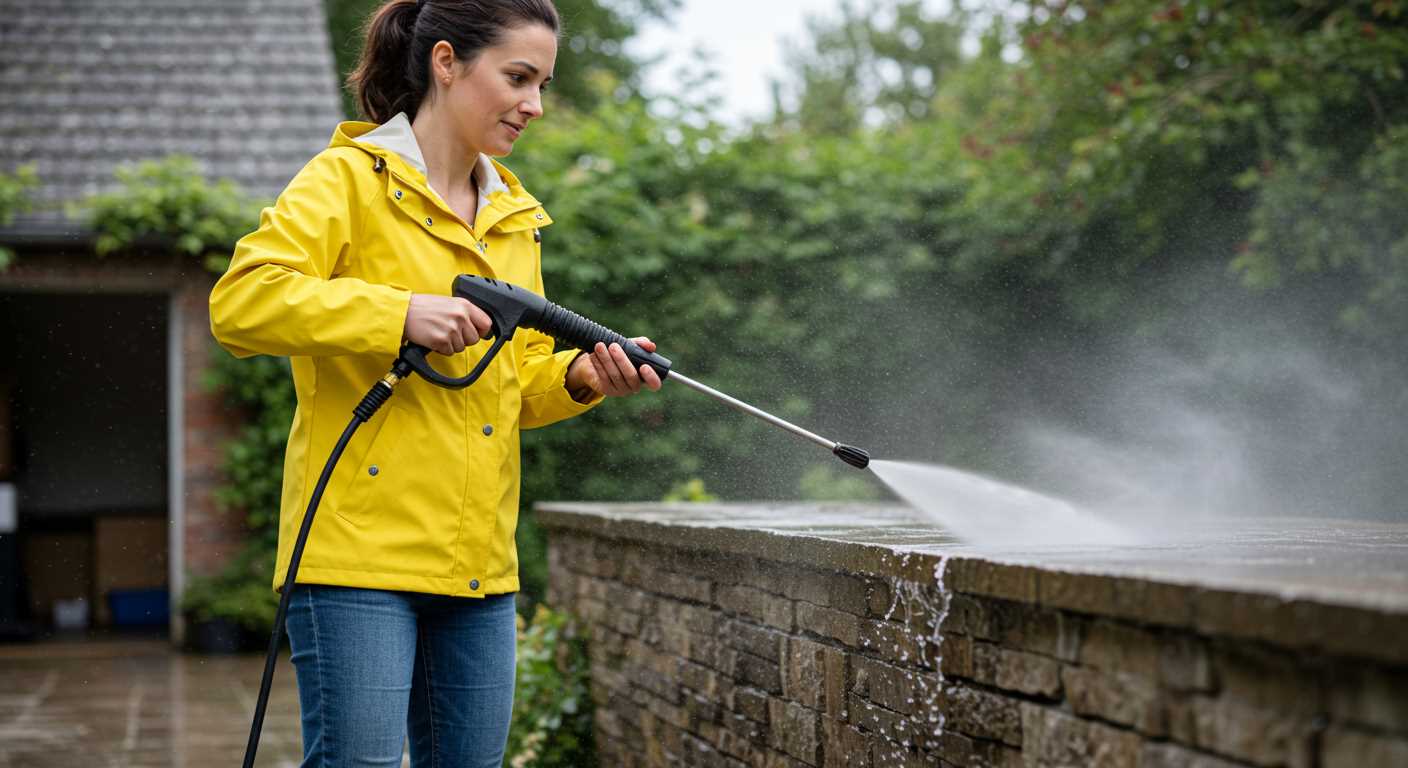
- For electric models, use a Ground Fault Circuit Interrupter (GFCI) outlet to minimise the risk of shock.
- Avoid using extension cords; opt for a unit with a long enough cable to reach the outlet safely.
- If your device runs on fuel, ensure it is located in a well-ventilated area to prevent fumes from building up.
Pressure and Distance Management
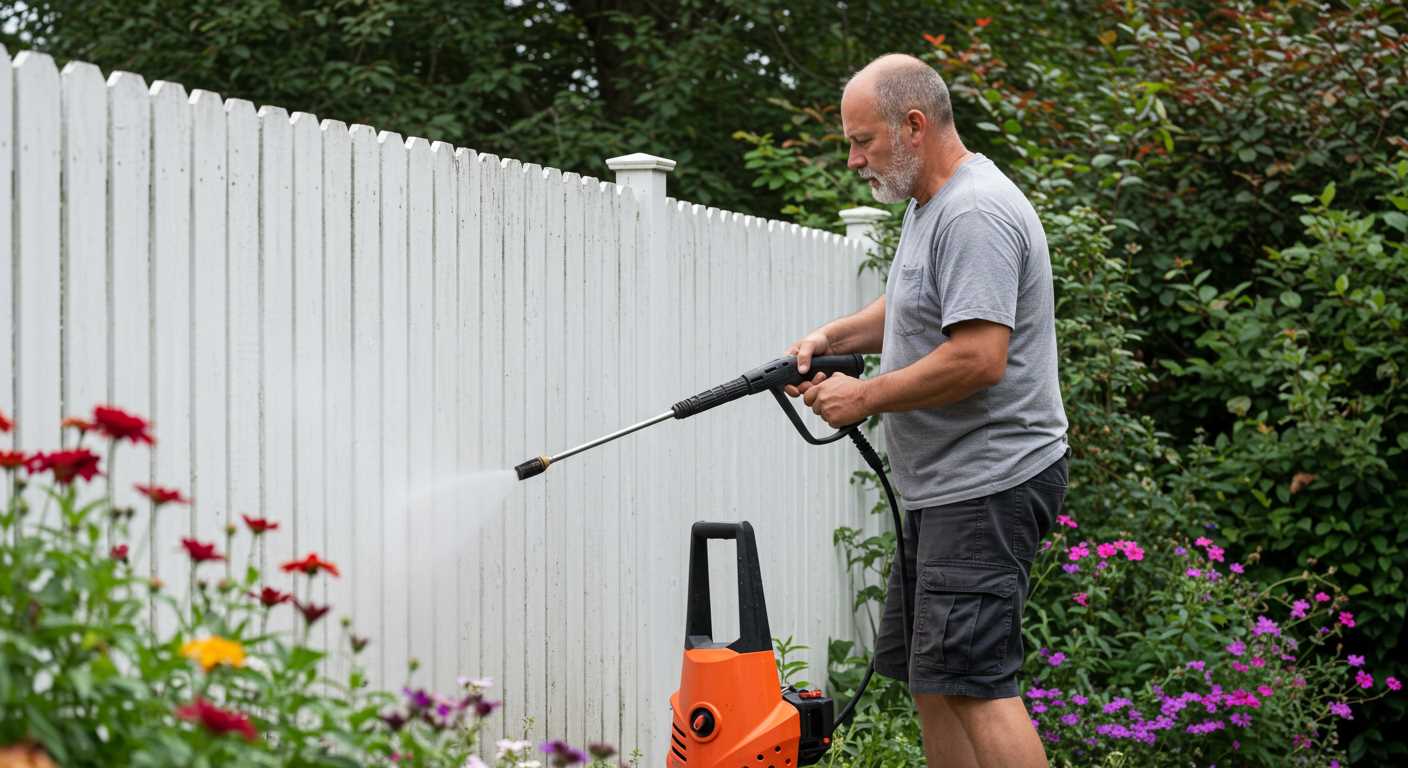
- Maintain a safe distance between the nozzle and surfaces being treated to avoid damage.
- Adjust the spray pattern and pressure settings according to the material you’re cleaning. Start with the lowest setting and increase gradually.
- Never point the nozzle at yourself or others, even if the machine is off.
Practice using the unit on a small, inconspicuous area first. This allows for familiarisation without risking damage to larger surfaces.
Lastly, keep the manual accessible. Familiarity with the manufacturer’s guidelines ensures safe and effective operation.
Post-Cleaning Care for Your Driveway
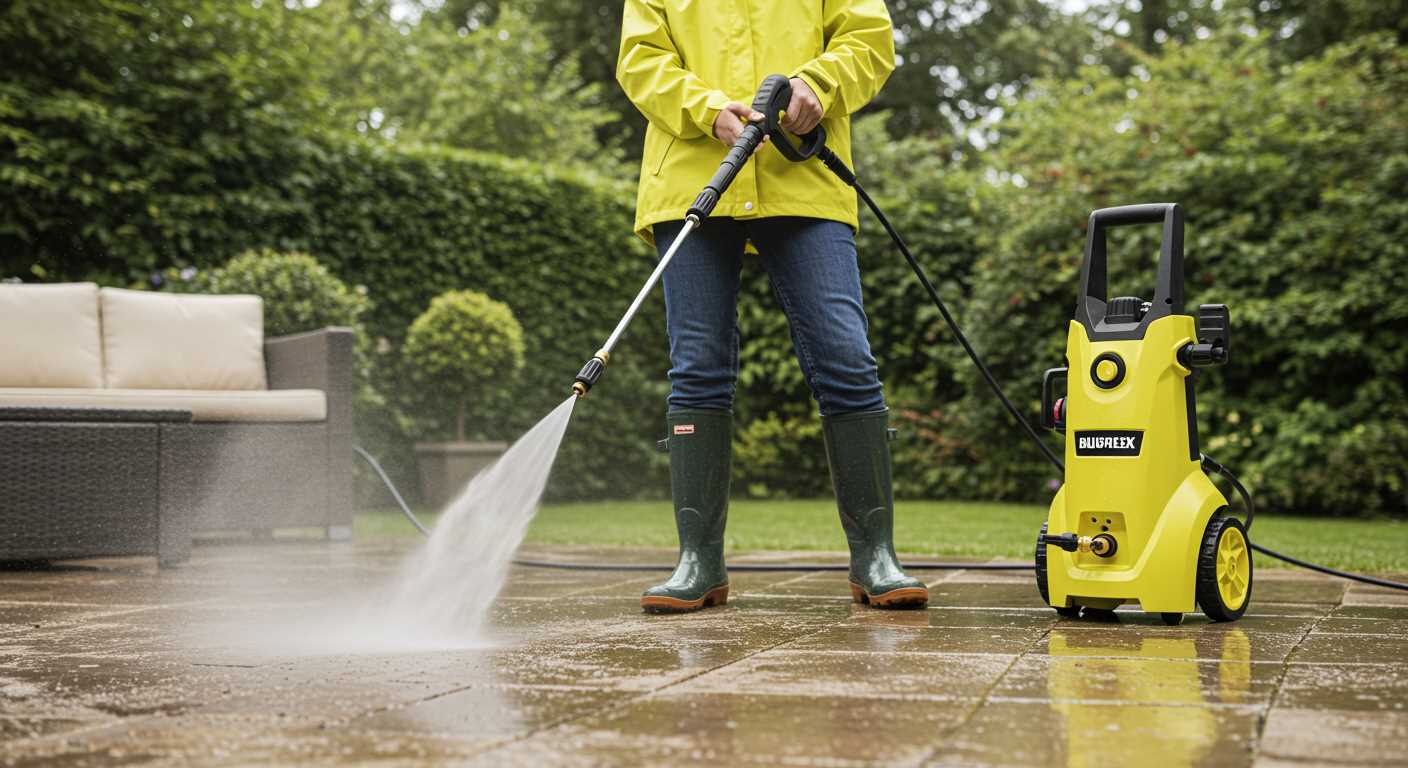
Rinsing the surface with clean water post-maintenance is crucial. This step ensures any remaining detergent residues are washed away, preventing potential discolouration or slick surfaces. Use a hose to achieve thorough coverage.
Sealing Options
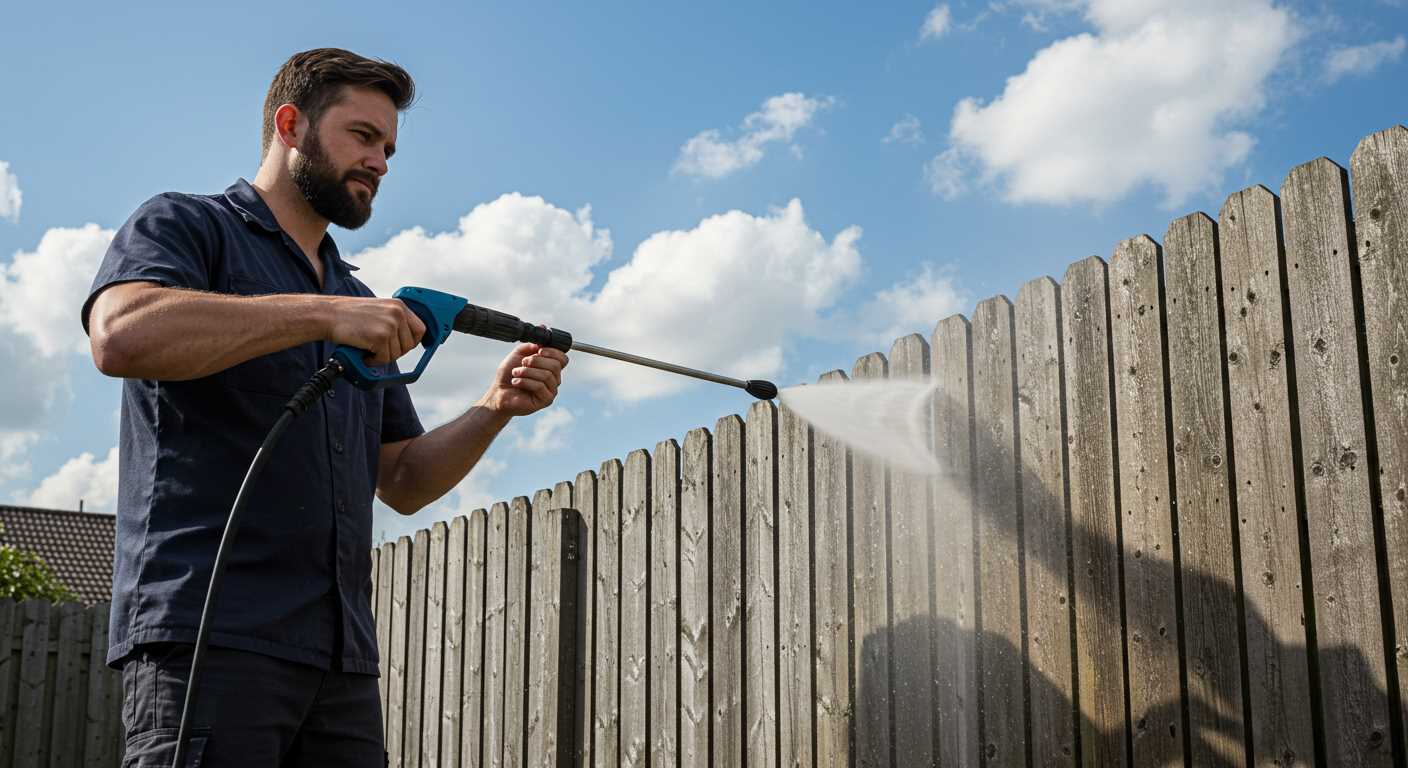
Applying a sealant can protect exposed surfaces from stains and weather damage. For asphalt, choose a sealant designed for flexibility and UV protection. Concrete driveways benefit from penetrating sealants that ward off moisture and oil stains. Ensure the surface is completely dry before applying any product.
| Surface Type | Recommended Sealant | Application Frequency |
|---|---|---|
| Asphalt | Oil-based sealant | Every 2-3 years |
| Concrete | Pentrating sealant | Every 3-5 years |
| Pavers | Wet look sealer | Every 1-3 years |
Regular Maintenance
Scheduled inspections for cracks or damage are beneficial. Small fissures should be filled promptly to prevent water intrusion and further deterioration. Keeping nearby vegetation trimmed helps to avoid organic debris accumulation.
Following these post-cleaning recommendations will keep your surface looking pristine and extend its lifespan significantly.




